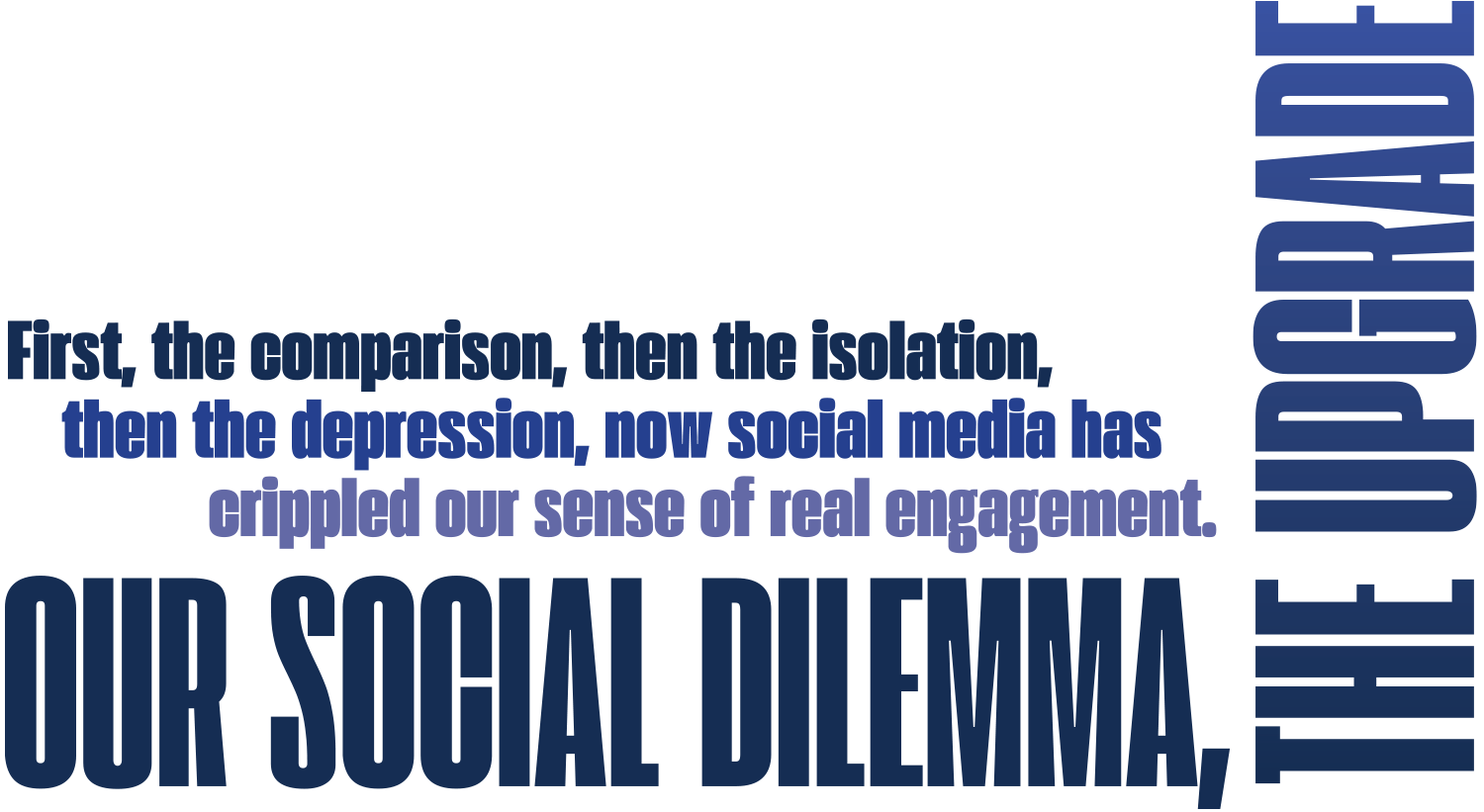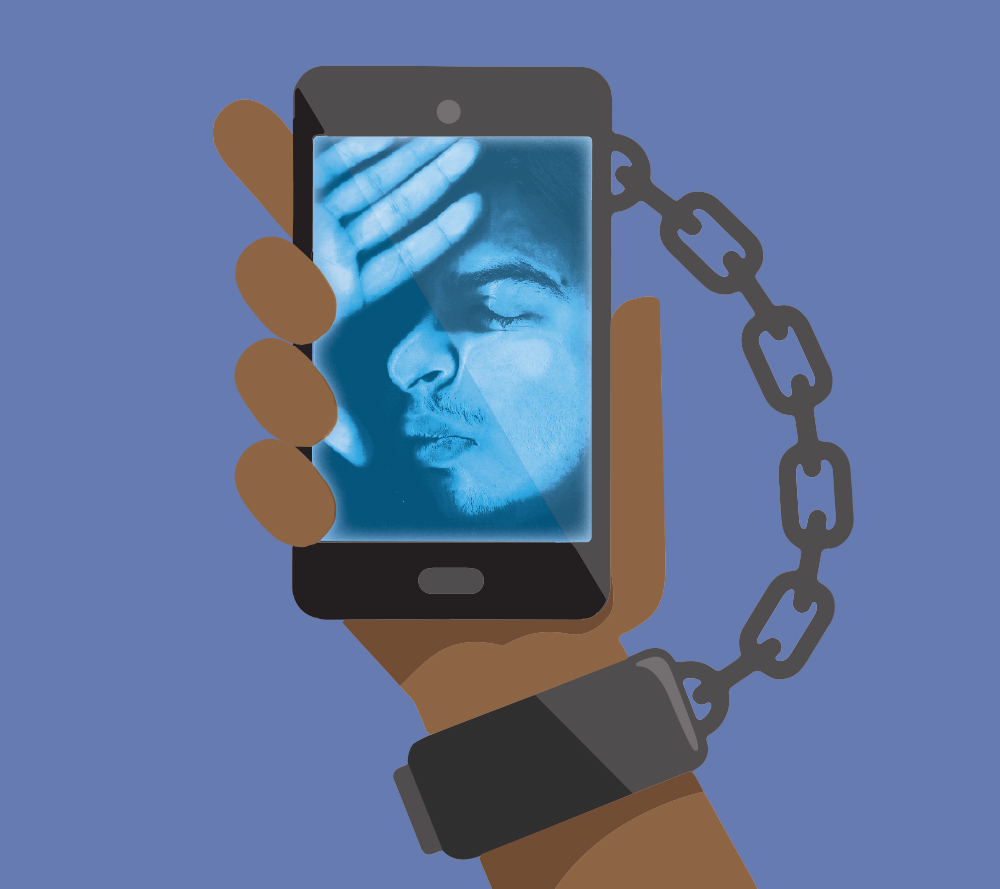

Please don’t misunderstand me. Social media has done a lot of good. It doesn’t just provide a needed distraction from the stressful world in which we live, it can also help us communicate and even connect with each other in a way that was previously impossible. Despite what some naysayers may lead you to believe, social media isn’t all bad! As more than 3 billion people get online every day, social media has provided entertainment, helped us communicate and connect, and even provided a platform for protest and revolution to those who needed it. To some it has provided a source of income. It’s helped start relationships. We even have church on Facebook when we couldn’t meet in our sanctuaries! We’ve lived the benefits of social media.
We’ve experienced the pitfalls as well. A 2018 Forbes article pointed out the negative effects social media can have on mental health. According to Forbes, plenty of studies find correlations between higher social media use and depression, anxiety, feelings of loneliness, lower self-esteem and isolation. Reducing the use of social media, some indicate, can actually make the user feel less lonely. Apparently the thing that seems to bring us together is the thing that serves to drive us apart. We can feel lonely and become disconnected from each other. And the lack of connection and engagement doesn’t stop there.
In a 2021 article featured on ScienceSurvey.com the author makes the case that “Social media can have both positive and negative effects on voter turnout. On one hand, it can increase awareness of issues and inspire people to vote to elect politicians to solve them. On the other hand, social media can encourage young people to turn to apps like Facebook and Twitter for political news and forgo taking part in other forms of political participation. After using these platforms, young people can feel that their voice is heard because feedback is often instantaneous, which may lead to them feeling that voting is ineffective in comparison.”
Did you catch that? The feedback online feels better than the delayed gratification that comes with being engaged in what is sometimes the long, arduous and messy process of change. There it is: The “post” versus the “process.” For many, the “post” is the preferred method of trying to make the world a better place.
That presents a problem.
To be fair, there’s nothing inherently wrong with hitting the “like ” button on a post on which you happen to agree, or with participating in the latest social media protest. Changing your profile picture to an image of George Floyd or posting a status demanding the arrest of the police who killed Breonna Taylor may very well inspire those within your circle of influence to take action. Those are good things.
The question is, however, when it comes to issues of justice, does your level of engagement reach beyond your phone? To put it another way: Have we gotten comfortable with a culture that allows us to make maximum noise while expending minimal effort? Are we still willing, in the effort to bring about meaningful change, to sacrifice? Are we willing to leave our houses and hit the streets, even experiencing discomfort and defeat for the sake of a cause? Have we allowed social media “engagement” to take the place of real life sacrifice?
This is our “Social dilemma.”
Long before the dangers of COVID-19 required social distancing, we struggled with the tug-of-war between keeping a safe distance, and really getting our hands dirty. After all, the issues faced by our world are messy. The truths we encounter are often ugly. The pain we face on a daily basis is very real.
So ugly is the mess of this world that even Jesus asked for the cup of His duty to pass Him by. If there was a way that Jesus could have saved us without dealing with the messy reality of the cross, I believe He would have chosen that way. “Let this cup pass from me…” If He were alive in our day Jesus would have been tempted to post a YouTube video with instructions on how to have a relationship with God and leave it at that. Or maybe the temptation would have been to “go live” and rail against the evils of the day, while avoiding the nails in His hands. Of course I believe Jesus would have pushed the boundaries of technology in order to reach people. As our Savior, however, I am glad that Jesus never forgot His calling to actually reach out to people, get personally involved in their lives, and make a difference.
For Jesus, the work of change demanded His time, His energy, and His attention. For Jesus, the effecting change was personal.
- Jesus sat with the woman at the well.
- Jesus touched a leper.
- Jesus ate dinner with Publicans and Sinners.
- He turned over the tables in the temple.
- He attended the synagogues on the Sabbath day.
- He engaged with his disciples and the Pharisees as well.
Jesus was very present. His engagement was very real.
Jesus took connection much further than an online presence ever could. He made a practical, palpable difference in people’s everyday lives. He showed up in their houses. He walked with them from day to day. He attended weddings and funerals and connected with people when they needed Him the most. We must follow His example and do the same.
- The voting booth needs your voice.
- People of color must run for office to be represented in positions of influence and power.
- HBCUs need very real financial support.
- Black businesses need black dollars in order to thrive.
- Black scholarship must contribute to the overall conversation on the most critical issues facing our society today.
- Some of the most highly recruited black athletes must choose HBCUs in order to raise the profile of the athletic programs of those schools.
We need more of the best and brightest black, Christian voices in every area of influence in our society. Men and women. We need more than just strong opinions on how things should be done. We need to actually get things done! The change must be personal.

We have the ultimate answer in Jesus Christ and as such, we must share Him with the world. We must engage. We must connect. We must make our voices heard and our presence felt. While we are busy with our bubbles, we can’t forget the real world. We must do more than just watch. We’re commanded to not only be “hearers of the word” but also doers. We can do more than just show up online. We can show up in real life.
Our world will be better because we did.